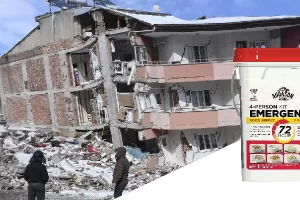Fire safety is crucial in residential areas. Once a fire happens in residential areas, it can be a great threat to human life and property. if the fire spread and loses control, it can ruin everything on its way. Here are reasons why fire safety is important for everyone.
Protection of Life
The primary reason for fire safety is to protect human life. Fires can spread rapidly and become life-threatening within minutes. Having proper fire safety measures in place can help prevent injuries and save lives.
Preservation of Property
Fires can cause extensive damage to homes and property. By implementing fire safety measures, such as smoke alarms, fire extinguishers, and fire-resistant materials, the risk of property damage can be reduced. Early detection and prompt response to fires can help minimize loss and damage.
Prevention of Fire Spread
Fire safety measures, such as creating clear escape routes, keeping exits unobstructed, and properly maintaining heating systems and electrical equipment, help prevent the rapid spread of fires. Controlling the spread of fire is essential to limit its impact and allow occupants to evacuate safely.
Early Detection and Warning
Smoke alarms and fire detection systems play a vital role in providing early warning of fires. They alert occupants to the presence of smoke or fire, giving them valuable time to evacuate or take appropriate action.
Emergency Preparedness
Implementing fire safety measures encourages residents to be prepared for emergencies. This includes having a well-practiced fire escape plan, knowing how to use fire extinguishers, and understanding the necessary actions to take in case of a fire. Being prepared can significantly improve response times and reduce panic during an emergency.
Community Safety
Fire safety is not just about individual homes but also about the safety of the entire community. Fires that start in residential areas can quickly spread to neighboring properties, endangering the lives and properties of others. By prioritizing fire safety, the overall safety of the community is enhanced.
Compliance with Regulations
Local building codes and regulations often require specific fire safety measures to be in place in residential areas. Complying with these regulations ensures that homes meet minimum safety standards and contribute to a safer living environment for residents.
Tips on fire safety in residential areas
Once a fire happens, it’s difficult to put out the fire as it can spread quickly. The best way to stay away from fire disasters is to prevent fire hazards in your daily life. Here are some tips you can follow to keep you away from fire hazards.
Install Smoke Alarms
Install smoke alarms on every level of your home and inside each sleeping area. Test them regularly and replace batteries at least once a year.
Have Fire Extinguishers
Keep fire extinguishers in key areas of your home, such as the kitchen, garage, and near fire-prone appliances. Learn how to use them properly and ensure they are regularly inspected and maintained.
Create an Escape Plan
Develop a fire escape plan with your family. Identify at least two escape routes from each room and establish a designated meeting point outside. Practice the plan regularly, especially with children, to ensure everyone knows what to do in case of a fire.
Clear Exits and Pathways
Keep exits and pathways clear of clutter, furniture, and other obstacles. This ensures a quick and unobstructed escape during an emergency.
Handle Flammable Materials Properly
Store flammable materials, such as gasoline, paint, and cleaning products, in a well-ventilated area away from heat sources. Follow instructions for their safe use and disposal.
Practice Safe Cooking
Never leave cooking unattended, especially when using high heat or open flames. Keep flammable items away from the stove, and use caution when handling hot objects.
Be Mindful of Electrical Safety
Do not overload electrical outlets or use frayed wires and damaged cords. Unplug appliances when not in use and avoid running cords under rugs or furniture. Consider professional inspection of the electrical system if needed.
Use Candles Safely
Keep candles away from flammable objects and never leave them unattended. Consider using flameless LED candles as a safer alternative.
Maintain Heating Equipment
Regularly inspect and maintain heating equipment, including furnaces, fireplaces, and space heaters. Keep flammable items at a safe distance and follow the manufacturer’s guidelines for proper usage.
Educate Children
Teach children about fire safety, including the dangers of playing with matches or lighters. Emphasize the importance of informing an adult in case of a fire emergency.
Close The Bedroom Doors at Night
Sleeping with bedroom doors closed can help slow the spread of fire and provide additional time for escape.
Install Fire-Resistant Materials
Consider using fire-resistant materials for furnishings, curtains, and bedding. They can help reduce the spread of flames and limit fire damage.
Regularly Maintain and Clean Chimneys
If you have a fireplace or wood-burning stove, have the chimney inspected and cleaned annually to prevent the buildup of flammable substances.
Stay Informed
Stay updated on fire safety guidelines and local fire codes. Familiarize yourself with emergency services in your area and know how to contact them in case of a fire.



